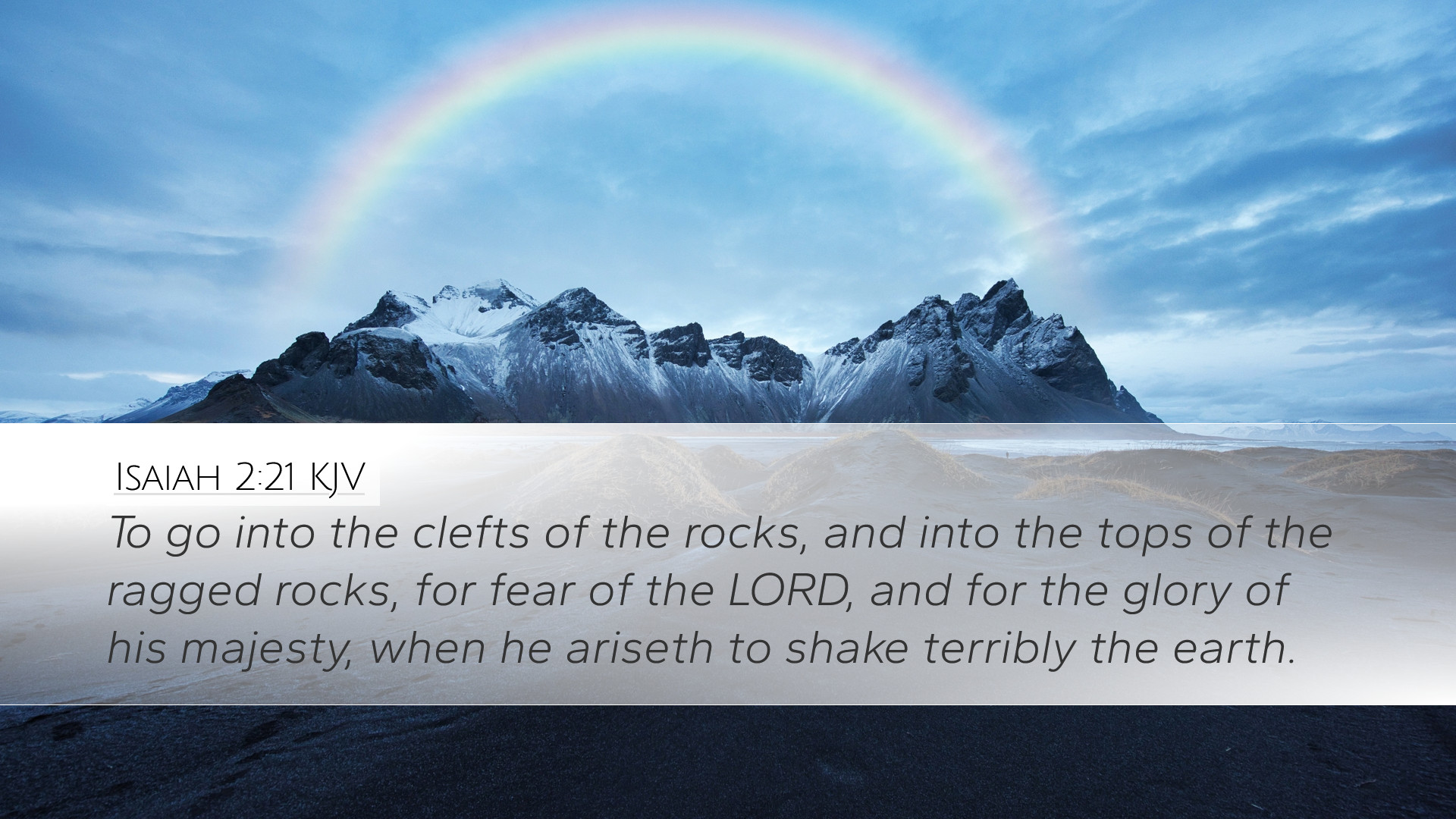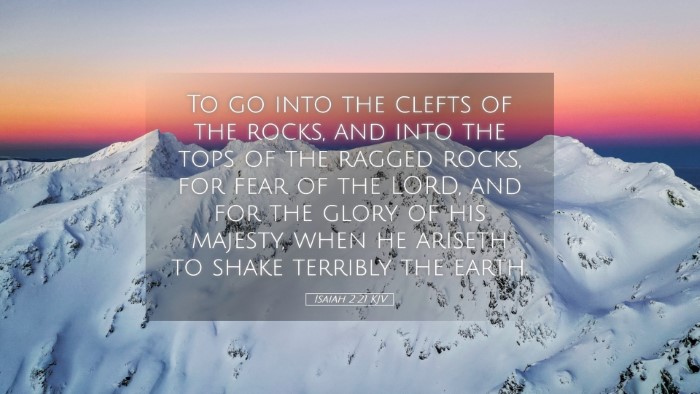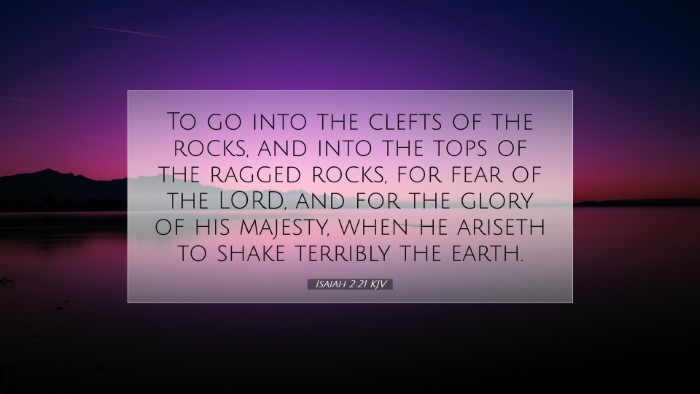Commentary on Isaiah 2:21
Isaiah 2:21 (KJV): "To go into the clefts of the rocks, and into the tops of the ragged rocks, for fear of the Lord, and for the glory of his majesty, when he ariseth to shake terribly the earth."
Introduction
This passage from Isaiah provides a vivid depiction of humanity's response to the majesty and power of God in the face of divine judgment. As scholars and theologians reflect on this verse, it is critical to understand the broader context of Isaiah's prophecies and the implications for both ancient Israel and the modern reader.
The Context of Isaiah 2
The book of Isaiah is a profound collection of prophetic writings addressing the people of Judah and Jerusalem. In the second chapter, the prophet outlines a future vision of the kingdom of God, emphasizing peace and enlightenment. However, this vision is juxtaposed with stark warnings of judgment upon the proud and those who trust in earthly powers.
Understanding Divine Judgment
Albert Barnes notes that the shaking of the earth symbolizes the imminent judgment that God brings upon those who are arrogant and self-reliant. This imagery serves as a reminder of God's sovereignty over creation and the folly of human pride.
- Pride in Humanity: The fear of the Lord is the beginning of wisdom (Proverbs 9:10). In Isaiah 2:21, the depth of human pride is highlighted, showcasing the stark contrast with divine majesty.
- The Nature of Fear: This fear is not merely a paralyzing dread but a reverent awe in the presence of God's holiness and power. Such fear leads to a recognition of human frailty.
Exegesis of Key Phrases
Analyzing the specific phrases of the verse reveals deeper theological significance.
"To go into the clefts of the rocks"
Matthew Henry comments on this phrase by emphasizing the instinctive human reaction to distress. The "clefts of the rocks" symbolizes the desire to hide from impending judgment. Just as Adam and Eve hid from God, so shall humanity find refuge in the earth's crevices when confronted with divine wrath.
"For fear of the Lord"
This fear signifies an acknowledgment of God's righteous authority. As Adam Clarke states, such fear is both an acknowledgment of God's power and a recognition of our own unworthiness. It propels individuals to seek refuge in humility before God rather than in material structures.
"The glory of his majesty"
The majesty of God encompasses His transcendence, holiness, and splendor. Barnes writes that the glory reflects God's moral perfection and the weight of His divine presence, which leads to an unavoidable recognition of human sinfulness and the need for atonement.
"When he ariseth to shake terribly the earth"
This imagery recalls prophetic motifs of God’s active judgment in both the natural and spiritual realms. Henry posits that this shaking is indicative of God’s intervention in history. It is a reminder that God will not sit idly by while injustice occurs; His righteousness will eventually prevail.
Theological Implications
This verse carries profound implications for understanding the nature of God and His relationship with humanity. It challenges contemporary notions of a benign deity.
- The Sovereignty of God: God’s right to judge is rooted in His sovereignty. This calls believers to recognize their accountability to the Creator.
- The Call to Repentance: This passage serves as a clarion call for repentance, highlighting the necessity of turning to God in humility.
Practical Application for Believers
For pastors and students alike, Isaiah 2:21 offers a message that is both cautionary and redemptive. It serves as a reminder of the awe-inspiring nature of God, urging an authentic relationship with Him.
- Awareness of God’s Majesty: Recognizing the depth of God’s majesty should cultivate a lifestyle of reverence and worship.
- Holiness in Life: Understanding the implications of God’s judgment encourages believers to pursue holiness, reflecting the character of Christ.
- Hope Amidst Judgment: While this verse emphasizes judgment, it is also a testament to hope—pointing to the restoration promised through the Messiah.
Conclusion
Isaiah 2:21 beckons a serious contemplation of the fear of the Lord in light of His glory and majesty. As both a prophetic warning and an invitation to deeper faith, this passage challenges believers to live in light of God's impending justice and grace. Pastors and teachers can use this verse to admonish their communities toward a greater awe of God, leading to transformative faith and action.
Ultimately, Isaiah's message resonates across the ages, reminding all who read it that true safety lies not in earthly assurances but in reverence for the Almighty.


